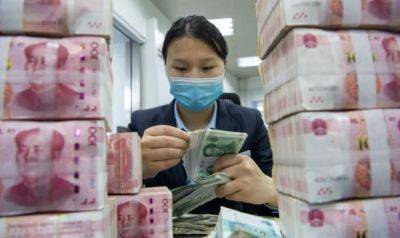In global game of influence, China turns to a cheap and effective tool: fake news
WASHINGTON (AP) — When veteran U.S. diplomat Kurt Campbell traveled to the Solomon Islands to counter Beijing’s influence in the South Pacific country, he quickly saw just how far China would go to spread its message.
The Biden administration’s Asia czar woke up one morning in 2022 to a long article in the local press about the U.S. running chemical and biological labs in Ukraine, a claim that Washington calls an outright lie. Started by Russia, the false and incendiary claim was vigorously amplified by China’s vast overseas propaganda apparatus.
It was another example of “clearly effective Russian and Chinese disinformation,” Campbell told the Senate Foreign Relations Committee in July.
Two years later, the claim still reverberates online, demonstrating China’s sprawling effort to reshape global perceptions. The campaign, costing many billions per year, is becoming ever more sophisticated thanks to artificial intelligence. China’s operations have caught the attention of intelligence analysts and policymakers in Washington, who vow to combat any actions that could influence the November election or undermine American interests.
The key tactic: networks of websites purporting to be legitimate news outlets, delivering pro-China coverage that often parallels official statements and positions from Beijing.
Shannon Van Sant, an adviser to the Committee for Freedom in Hong Kong Foundation, tracked a network of dozens of sites that posed as news organizations. One site mimicked The New York Times, using a similar font and design in what she called an attempt at legitimacy. The site carried strongly pro-Chinese messages.
When Van Sant researched the site’s reporters she found no information. Their names didn’t belong to any known







